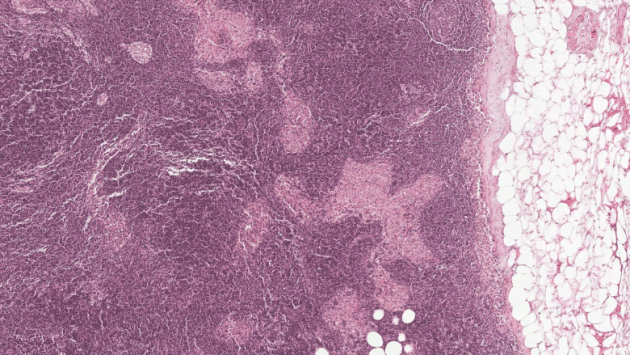Google uses AI to help diagnose breast cancer
 Mar 05: Google, which not along ago was using artificial intelligence to identify cat pictures, has moved onto something bigger — breast cancer.
Mar 05: Google, which not along ago was using artificial intelligence to identify cat pictures, has moved onto something bigger — breast cancer.
Google announced Friday that it has achieved state-of-the-art results in using artificial intelligence to identify breast cancer. The findings are a reminder of the rapid advances in artificial intelligence, and its potential to improve global health.
Google used a flavor of artificial intelligence called deep learning to analyze thousands of slides of cancer cells provided by a Dutch university. Deep learning is where computers are taught to recognize patterns in huge data sets. It’s very useful for visual tasks, such as looking at a breast cancer biopsy.
With 230,000 new cases of breast cancer every year in the United States, Google (GOOGL, Tech30) hopes its technology will help pathologists better treat patients. The technology isn’t designed to, or capable of, replacing human doctors.
“What we’ve trained is just a little sliver of software that helps with one part of a very complex series of tasks,” said Lily Peng, the project manager behind Google’s work. “There will hopefully be more and more of these tools that help doctors [who] have to go through an enormous amount of information all the time.”
Peng described to CNNTech how the human and the computer could work together to create better outcomes. Google’s artificial intelligence system excels at being very sensitive to potential cancer. It will flag things a human will miss. But it sometimes will falsely identify something as cancer, whereas a human pathologist is better at saying, “no, this isn’t cancer.”
“Imagine combining these two types of super powers,” Peng said. “The algorithm helps you localize and find these tumors. And the doctor is really good at saying, ‘This is not cancer.'”
For now, Google’s progress is still research mode and remains in the lab. Google isn’t going to become your pathologist’s assistant tomorrow. But Google and many other players are striving toward a future where that becomes a reality.
Jeroen van der Laak, who leads the pathology department at Radboud University Medical Center, believes the first algorithms for cancer will be available within a couple years, and large-scale routine use will occur in about five years. His university provided the slides for Google’s research.
The technology will be especially useful in parts of the world where there’s a shortage of physicians. For patients who don’t have access to a pathologist, an algorithm — even if imperfect — would be a meaningful improvement. Van der Laak highlighted India and China as two underserved areas.money.cnn.com
